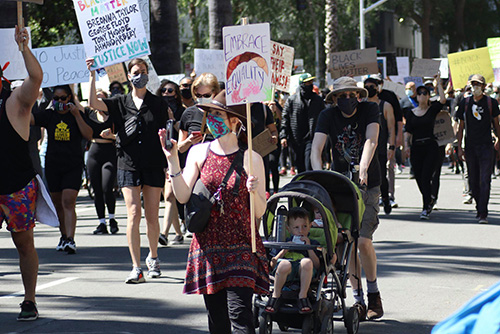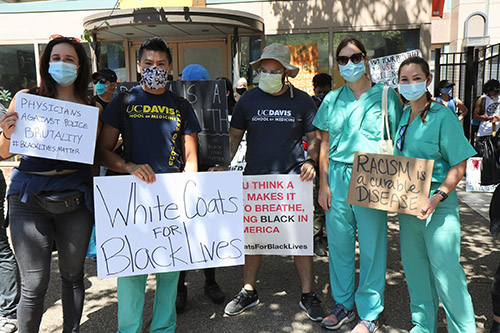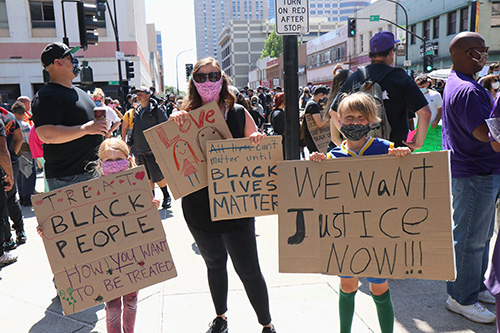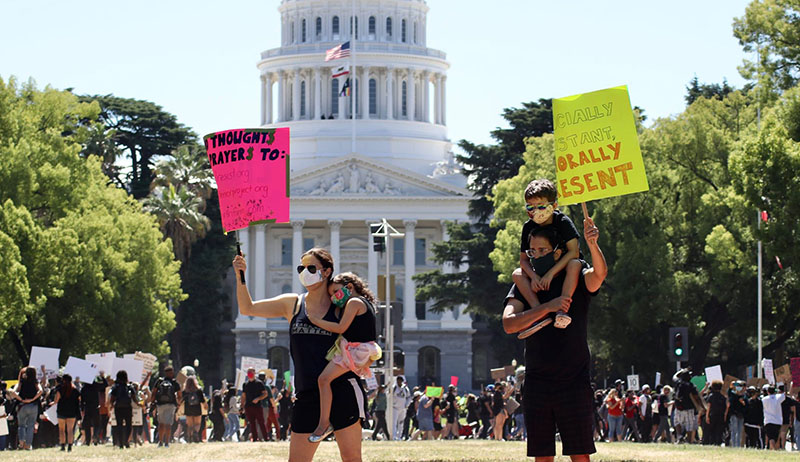By Darrick Lam,
President and CEO,
ACC Senior Services
Black lives matter. The senseless killing of George Floyd and others by the police shows that bigotry and discrimination against African Americans will keep growing unless we step outside of our comfort zone and take real action.
I’ve talked to many ACC employees who are outraged, hurt, and threatened by this latest round of police brutality, especially those who have experienced unbridled prejudice in the past. I believe ACC needs to explore ways to break its silence and join the worldwide community to condemn the killings of George Floyd, Breonna Taylor, Ahmaud Arbery and other African Americans. We cannot continue to tolerate the deaths that have shocked the nation’s conscience or the bigotry and discrimination that foster it.
Today, many people, including victims of violence, are afraid to call the police, fearing that more harm than good will result. As a trained social worker, I agree with the view that policing alone cannot solve the underlying causes of social problems.
Thousands of protesters marched in downtown Sacramento on June 6, 2020. More than 750 cities in U.S. held protests since the killing of George Floyd.
You might wonder what this has to do with our mission to care for seniors. Seniors, too, can be victims of discrimination, violence, and abuse. If we focus only on what we consider “our business,” then it becomes easier for destructive forces to divide and harm us. When our neighbors are fighting for social justice, we must step in and support their fight to be treated with the same dignity and respect due to every person. Protests around the world in the wake of Mr. Floyd’s death are a catalyst for populist change and we have an opportunity to be part of this change.
I fully agree with an article published by TIME Magazine on June 9th that “lasting change won’t happen without actively deconstructing our beliefs about race…in order to make social and economic change in a society rife with institutional racism, it’s not enough to not be racist, but rather people need to be actively anti-racist. For many people learning how to be a helpful ally, the best place to start is educating themselves and listening.”
We often use our own culture and values as a measuring stick to determine how and why we treat people the way we do. We forget to ask ourselves, “How does this person want to be treated, not based on my values and culture, but theirs?” Or, “Do I even know their culture and values well enough to know if I’m treating them with respect?” These questions are the basis of ethical human interaction. We all need to learn, to grow, and to fully appreciate other people.
We can begin our fight for social justice by asking ourselves these questions:
- How can we help African Americans and other communities of color obtain justice?
- What can we do to reduce implicit biases, racial injustice, and inequality in our institutions, not just law enforcement?
- How can we protect the rights of all our citizens regardless of race, color, ancestry, religion, sexual orientation, age, or country of origin?
- What can we do to invest in our community to educate our young and old, fight racism, and give would-be victims new life-changing opportunities?
It’s time for ACC to take real action and join our neighbors in support of causes that address racial violence in this country. Please let me know if you would like to join me in this long overdue fight for social justice. For those who are interested in a dialogue, please email your comments or questions to info@accsv.org.






Add a Comment